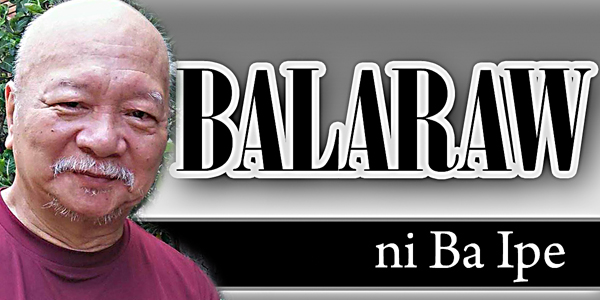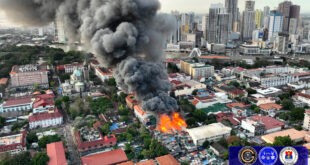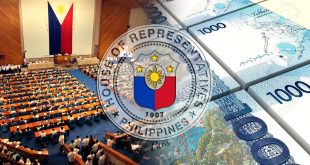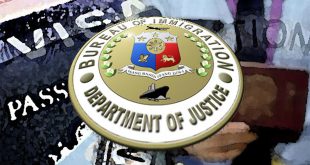BALARAW
ni Ba Ipe
MASKI noong panahon ni Cory Aquino, iminungkahi ang pagkakaroon ng fixed term para sa uupong chief of staff ng Sandatahang Lakas. Hindi tama na walang termino ang hepe ng AFP. Ngunit noong Lunes lamang nagpasa ng panukalang batas tungkol diyan ang Senado. Hindi pa natin alam kung may ipapasang bersiyon ang Kamara de Representante. Mabagal ang Kongreso sa paggawa ng mahahalagang polisiya ng bansa. Sobrang bagal, sa totoo lang.
Sa bersiyon ng Senado, tatlong taon ang iminungkahing termino ng hepe. Bumoto ng yes ang 23 senador. Kasamang magkakaroon ng termino ang ibang sundalo na hahawak ng responsableng posisyon sa AFP. Iniiwasan sa ipinasang panukalang batas ang kasalukuyang “revolving door policy” na hindi tumatagal ang hepe at magreretiro na lang.
Ayon sa mga senador na may-akda, itinakda ng Senate Bill No. 2376, o “Act Strengthening Professionalism and Continuity of the Policies and Modernization Initiatives of the Armed Forces of the Philippines, Providing Funds Therefor, and for Other Purposes” ang pagkakaroon ng propesyonalismo sa AFP sa pagpapalakas ng merit system at pagbibigay ng panahon sa liderato ng AFP na isagawa ang mga reporma sa institusyon.
Tiningnan namin ang Saligang Batas ng 1987 at nagulat kami sa rami ng mga probisyon tungkol sa Armed Forces. Hitik ito ng probisyon tungkol sa AFP. Sa Declaration of Principles and State Policies, may dalawang mahalagang probisyon:
SEC. 3. Civilian authority is, at all times, supreme over the military. The Armed Forces of the Philippines is the protector of the people and the State. Its goal is to secure the sovereignty of the State and the integrity of the national territory.
SEC. 4. The prime duty of the Government is to serve and protect the people. The Government may call upon the people to defend the State, and, in the fulfillment thereof, all citizens may be required, under conditions provided by law, to render personal military or civil service.
May ilang probisyon sa General Provisions:
SEC. 4. The Armed Forces shall be composed of a citizen armed force which shall undergo military training and serve, as may be provided by law. It shall keep a regular force necessary for the security of the State.
SEC. 5. (1) All members of the Armed Forces shall take an oath or affirmation to uphold and defend this Constitution.
(2) The State shall strengthen the patriotic spirit and the nationalist consciousness of the military, and respect for people’s rights in the performance of their duty.
(3) Professionalism in the Armed Forces and adequate remuneration .and benefits of its members shall be a prime concern of the State. The armed forces shall be insulated from partisan politics.
No member of the military shall engage directly or indirectly in any partisan political activity, except to vote.
(4) No member of the Armed Forces in the active service shall, at any time, be appointed or designated in any capacity to a civilian position in the Government including government-owned or controlled corporations or any of their subsidiaries.
(5) Laws on retirement of military officers shall not allow extension of their service.
(6) The officers and men of the regular force of the armed forces shall be recruited proportionately from all provinces and cities as far as practicable.
(7) The tour of duty of the Chief of Staff of the armed forces shall not exceed three years. However, in times of war or other national emergency declared by the Congress, the President may extend such tour of duty.
SEC. 6. The State shall establish and maintain one police force, which shall be national in scope and civilian in character, to be administered and controlled by a national police commission. The authority of local executives over the police units in their jurisdiction shall be provided by law.
SEC. 7. The State shall provide immediate and adequate care, benefits, and other forms of assistance to war veterans of military campaigns, their surviving spouses and orphans. Funds shall be provided therefor and due consideration shall be given them in the disposition of agricultural lands of the public domain and, in appropriate cases, in the utilization of natural resources.
Importante na alam at matandaan ng bawat Filipino na sinisiguro ng mga probisyon ang pangingibabaw ng civilian authority sa military dahil iniiba nito ang konsepto at estruktura ng Sandatahang Lakas. Ayon sa kasalukuyang Konstitusyon, binubuo ang AFP ng citizen armed force kahit may regular force para sa seguridad ng Estado.
Binawasan ang poder ng presidente bilang Commander-in-Chief ng AFP tungkol sa rason sa pagsususpendi ng pribilehiyo sa ilalim ng writ of habeas corpus at pagdedeklara ng batas militar. Tanging paglusob ng kaaway at rebelyon ang dahilan upang magawa ng pangulo ang magdeklara ng batas militar.
Bukod diyan, may poder ang Korte Suprema na rebisahin ang basehan ng pagdedeklara ng batas militar sa ilang bahagi ng bansa o maging sa buong bansa. Ito ang basehan kung bakit hindi basta magagamit ni Rodrigo Duterte ang AFP sa susunod na halalan. Siniguro ng mga gumawa ng Konstitusyon ng 1987 na malinaw ang poder ng pangulo. Mukhang hindi nauunawaan ni Duterte ang Saligang Batas.
 HATAW! D'yaryo ng Bayan hatawtabloid.com
HATAW! D'yaryo ng Bayan hatawtabloid.com





















